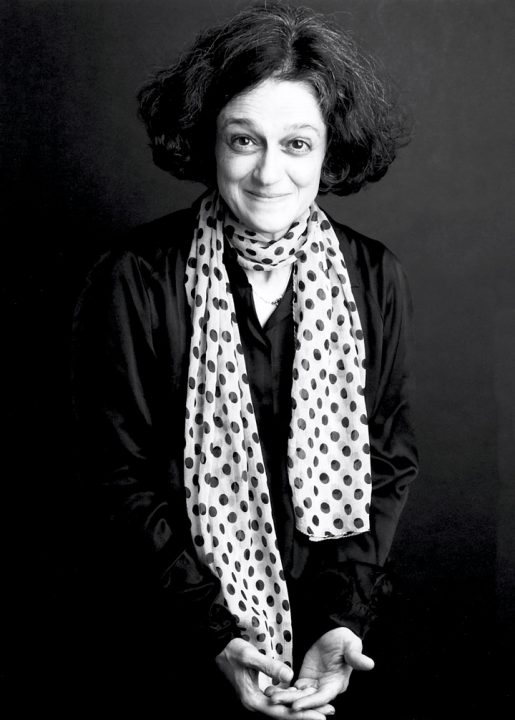The Baha’i “Prayer for America” describes the United States in lofty, beautiful tones. But how do we say the words, when we know they don’t match reality? Right after the 2020 election, Bahiyyih reflects on this question and on her own journey to understand the prayer.
In this episode of “Moments of Meaning,” Sean Hinton speaks to Bahiyyih Nakhjavani, a writer and poet. While she now resides in eastern France, she was born in Tehran, Iran, and grew up in Kampala, Uganda — with many visits to Haifa, Israel, where her parents lived when she was studying. Bahiyyih shares how her understanding of the United States and the Baha’i “Prayer for America” changed over the years — from her youth as part of “the hippie generation, and the anti-war, anti-vietnam generation” to now, 30 years later, right as the 2020 U.S. election results were coming in.

This prayer was revealed by Abdu’l‑Baha, the son of the prophet and founder of the Baha’i Faith and his designated successor, during the nine months when He travelled across the United States and Canada, drawing audiences from all social and economic circles. Having spent almost his whole life as a prisoner and an exile in the Middle East, Abdu’l-Baha was set free in 1908 and travelled throughout North America from 1912 to 1913. His “Prayer for America” reads:
“O God! Let this American democracy become glorious in spiritual degrees even as it has aspired to material degrees, and render this just government victorious. Confirm this revered nation to upraise the standard of the oneness of humanity, to promulgate the Most Great Peace, to become thereby most glorious and praiseworthy among all the nations of the world. O God! This American nation is worthy of Thy favors and is deserving of Thy mercy. Make it precious and near to Thee through Thy bounty and bestowal.”
For Bahiyyih, whose youth was greatly influenced by the anti-establishment sentiments of the time, reading this prayer during the height of the Vietnam war elicited complicated feelings. “I found myself reading the words of this prayer with a feeling of… I don’t know how to describe it. It was something like indignation, if it’s possible to say a prayer in the state of indignation.” She says that she kept thinking, “How can Abdu’l Baha describe this country… as if it wasn’t unjust?”
“For years, I would tiptoe around it,” she recounts. “I would sidestep round it in a sort of embarrassed way because I didn’t want to have to look at it really seriously.”
But now, decades later, as America goes through a time full of conflict, injustice and divisiveness, Bahiyyih has gained a new perspective. As she said prayers on election night, 2020, she began to reflect on the meaning of the prayer, and what Abdu’l-Baha could have meant. “He is praying for the world,” Bahiyyih realized, and he is “beseeching the nation … to reach out towards its best self … It was so much more than anything I had ever read or understood the prayer to mean before.”
Now, more than ever, she says, “I believe much more that the words on the page are capable of creating the reality around me.”
The destiny of America, its spiritual capacity and its potential to lead the world towards peace, was a prominent theme in the talks of Abdu’l-Baha during his travels throughout the country. On many occasions Abdu’l-Baha foreshadowed the great station that the American nation could achieve if it turned towards God, overcame the injustices which divided it, and rose, united, to champion the oneness of all humankind.
“Moments of Meaning” is a podcast where Sean Hinton speaks to people from all walks of life whose lives have been profoundly affected by the writings of the Baha’i Faith. They share the quotes that inspired them and delve into the story of that moment of meaning and the powerful changes it caused.

Comments
Sign in or create an account
Continue with Googleor